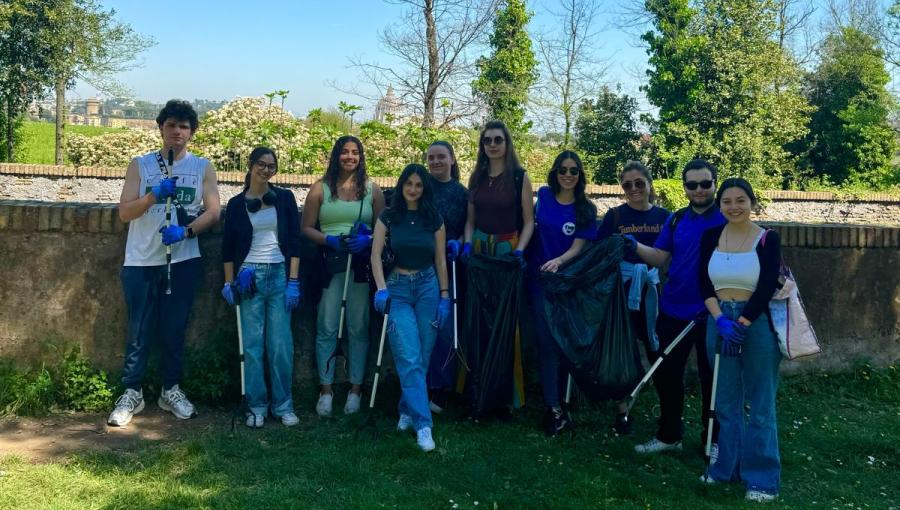JCU Hosts Humilitas Executive Director Gaia Mormina for Service Learning Lecture
JCU’s Service Learning Project – Combining Fieldwork and Education kicked off the semester by hosting Gaia Mormina – Project Manager and Executive Director of Humilitas Onlus and collaborator of Casa Scalabrini 634 on October 15 and 19, 2018. Through practical and technical skill building classes and projects such as Gustamundo and In Cammino Catering Migrante, Humilitas and Casa Scalabrini collaborate to set professional goals for migrants, helping them to achieve social inclusion through engagement in the Italian workforce.
During the first lecture, Gaia presented Scalabrini 634 and the Gustamundo and In Cammino catering businesses. She explained the multi-faceted connection between inclusion in society and employment. The possibility of applying talent and skills developed over time not only generates income, but allows individuals who have been forced to flee their home country to regain dignity and hope. Gaia came with Amid, an Iranian refugee involved in the In Cammino project, and shared his story. Amid and his wife were forced to seek asylum in Italy for personal safety reasons. Unfortunately, Amid’s wife was unable to integrate in the Italian context and ended up moving back to Iran. In spite of the long and difficult journey he faced to reach Italy, and the loneliness he felt after his wife’s departure, Amid dreamt of becoming a chef. In April 2018, Humilitas started a project called In Cammino designed to teach migrants the basic skills needed to open a business. Thanks to the project, Amid is on a new path, living his dream.

Humilitas- Gaia Mormina
During the second lecture, Gaia explained how both hard and soft skills are important for a career in the humanitarian field. While hard skills (a specific education and technical skill set) are fundamental for many career paths, soft skills can help differentiate candidates with similar backgrounds and CVs.
To illustrate the importance of soft skills, Gaia presented two Humilitas volunteers, Maria Plateo and Santiago Martin. Maria, former employee of the JCU Center for Professional and Continuing Education and Career Services, initially joined Humilitas as a service beneficiary by attending the cooking classes. Her objective was to grasp Humilitas’ mission and understand how she could give back. Maria is now responsible for the development of social media content for Humilitas. Gaia says, “We didn’t think we needed someone to work in this area. Now, thanks to Maria, we know the value of social media. At the same time, we know that only Maria can do what she does, precisely because she took the time to get to know Humilitas.” Maria tailored her skills to the needs of the organization, becoming an invaluable team member.
Santiago is a JCU sophomore who volunteers at Humilitas by teaching English. “Listening to my students’ different stories and learning about their experiences and hardships gives me much more than what I give them by teaching English.” This is an example of what Gaia calls “the importance of reciprocity” in humanitarian projects. There should always be an exchange, a give and take and an opportunity to learn from each other. Moreover, she highlighted the significance of empathy, power of observation, and active listening needed to identify problems that need fast solutions. Gaia also stressed the unequivocal value of humanity in this field: “Most importantly, learn their names. People have an identity before they have needs.”
Every member of the initiatives that Gaia illustrated – be it the beneficiaries, creators, or volunteers – has a distinct and irreplaceable role in the development of projects. The variables “what can you give to the company?” and “what can the company give to you?” are inseparable in the greater design of pursuing a career, no matter what the field may be. With similar CVs, candidates must rely on their soft skills to differentiate themselves from the rest and prove how their uniqueness can bring more benefits.





